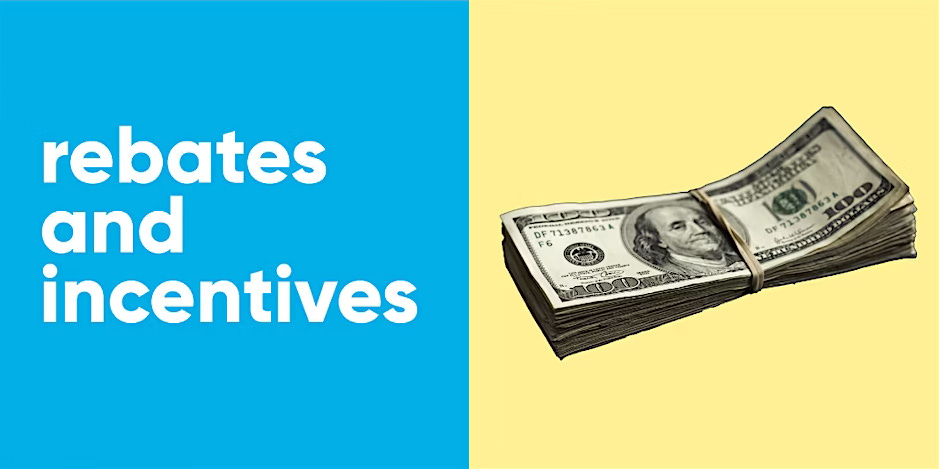Rebates and Incentives—Lowering the costs of electrification
Learn how to harness the incentives that are making electrification more affordable than ever.
Upgrading your home with high efficiency electric appliances and switching to an electric vehicle will lower your ongoing energy costs and dramatically reduce your carbon emissions, but the initial costs can be daunting. Fortunately, significant incentives are available from utilities, states and the federal government to help you reduce the up front costs of EVs, heat pumps, weatherization, and other home upgrades. These incentives can save you thousands of dollars, and typically make the most energy efficient options cost the same or even less than cheaper, low efficiency products.
Watch as we discuss the types of incentives available and how to identify the ones that you would qualify for. We will cover federal tax credits, federal Home Electrification and Appliances Rebates (HEAR), state energy efficiency programs and utility based incentives and the resources that can help you find information about them. We will answer the following questions and more:
What is the Inflation Reduction Act and what incentives does it provide?
What do the IRA tax credits cover?
What is the best way to plan ahead and take full advantage of the IRA tax credits?
What are the HEAR up-front rebates, and when will they be available in my state?
How do I learn about the income qualifications?
Can these federal incentives be combined with state and local incentives?
What are the utility or state funded incentives available?
Where do I find information about all of the incentives in my area?
Watch this webinar to learn how to harness energy efficiency incentives.
This webinar is part of the Electrify Now “Go Electric!” series developed in partnership with LEARN. Find more Go Electric! webinars with information and tips on other important electrification topics here.
Explore free courses on energy efficiency and electrification with The LEARN Program. LEARN's interactive learning hub covers topics like building design & construction, HVAC and hot water systems, renewable energy, and more as well resources to help you electrify your own home. Start learning today at sandiegolearn.com.
Hosts and Panelist:
Brian Stewart - Brian co-founded Electrify Now to help energy consumers and homeowners learn about the benefits of electrification. He has over 40 years of experience in product design, engineering, manufacturing and sustainability and held many leadership roles at Nike Inc. including Vice President of Sustainable Innovation.
Joe Wachunas - In addition to his work for Electrify Now, Joe is a Program Manager for the New Buildings Institute, managing the Advanced Water Heating Initiative. He is a frequent contributor to CleanTechnica writing articles about topics relating to electrification and clean energy. Joe and his family use their own home to experiment and learn about all electric solutions, solar power and EVs.
David Friedman - Senior Director of Federal Policy, Rewiring America. David has served in leadership, advocacy and research roles at Consumer Reports and the Union of Concerned Scientists, and has led both the US Department of Energy's Office of Energy Efficiency and Renewable Energy and the Department of Transportation's National Highway Traffic Safety Administration. He has policy and technology expertise across vehicle and home efficiency and electrification, renewable energy, economics and auto safety. David loves learning from other's life experiences to find or expand our common ground.
Andre Meurer - Director of Product, Building Decarbonization Coalition (BDC). André leads the creation of a digital platform to help homeowners, renters, and contractors switch to electric technologies. He oversees the development of The Switch Is On website, including tools such as the Incentive Finder and the Contractor Finder. André draws on his background in management consulting and software leadership to design practical, user-friendly tools and resources that simplify the path to electrification.




